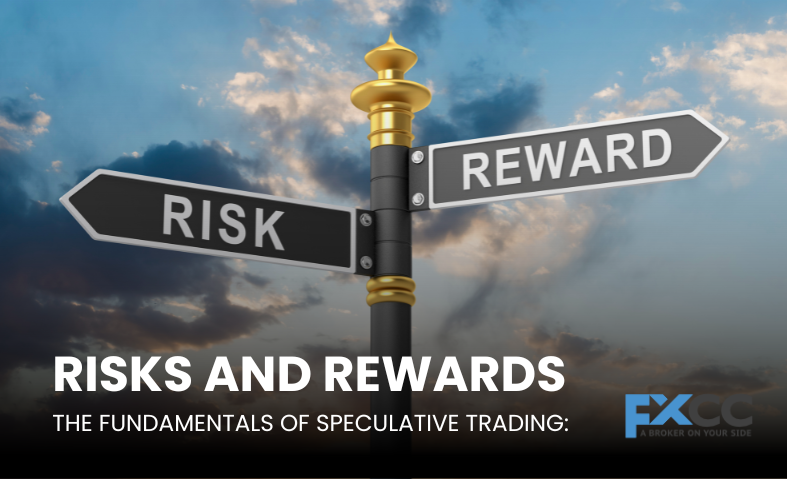Speculative trading has long been a captivating aspect of the financial markets. It’s the art of taking calculated risks in the hopes of generating significant rewards. But while the prospect of quick profits might sound enticing, it’s crucial to understand both the potential gains and the inherent dangers of this fast-paced activity.
In this article, we’ll delve into the basics of speculative trading, explore its risks and rewards, and provide insights on how to navigate this thrilling yet challenging world.

What Is Speculative Trading?
Speculative trading focuses on purchasing or selling financial assets like stocks, currencies, or commodities to earn a profit from changes in their market prices. Unlike traditional investing, where the focus is on long-term growth or income generation, speculative traders aim to capitalize on short-term market movements.
For instance, a trader might purchase a stock they believe will rise in price over the next few days or sell a currency pair expecting a decline. This approach relies heavily on market timing and predictions rather than the intrinsic value of the assets.
The Rewards of Speculative Trading
High Profit Potential
Speculative trading offers the opportunity for substantial profits in a relatively short time. Traders who correctly anticipate market trends can see rapid returns on their investments. For example, identifying a sharp increase in oil prices due to geopolitical tensions could lead to lucrative trades in energy futures.
Flexibility and Accessibility
With advancements in technology, speculative trading has become accessible to anyone with an internet connection. Platforms like stock trading apps or cryptocurrency exchanges allow individuals to participate in global markets anytime, anywhere.
Skill Development
Successful speculative trading requires constant learning and analysis. Traders must stay informed about market trends, geopolitical events, and economic indicators. Over time, this practice hones critical thinking and decision-making skills.
The Risks of Speculative Trading
High Volatility
The same rapid price movements that create opportunities for profit can also result in significant losses. Markets can be unpredictable, and even the most experienced traders may find it challenging to accurately predict outcomes.
Leverage Dangers
Many speculative traders use leverage, borrowing money to increase their position size. Although this approach has the potential to boost earnings, it equally increases the likelihood of significant losses. A small market shift in the wrong direction could result in losing more than the initial investment.
Emotional Stress
Speculative trading can be a rollercoaster of emotions. The pressure to make quick decisions, coupled with the potential for substantial financial loss, can take a toll on mental well-being. This makes emotional discipline a key component of trading success.
Lack of Guarantees
Unlike traditional investments that may provide dividends or interest income, speculative trading relies solely on market conditions. This means there’s no guaranteed return, and traders must accept the possibility of losing their entire investment.
How to Manage Risks in Speculative Trading
Educate Yourself
Knowledge is power in speculative trading. Study market dynamics, learn technical analysis, and understand the assets you’re trading. Continuous education helps improve decision-making.

Set Limits
Establish a clear budget for trading and never invest more than you can afford to lose. Use stop-loss orders to automatically close positions at a predetermined loss level, preventing excessive damage.
Start Small
Starting with smaller trades is a smart way to build experience and develop confidence. As you learn and refine your strategies, you can gradually increase your exposure.
Maintain Discipline
Avoid trading based on emotions or impulsive decisions. It’s essential to remain committed to your trading plan and avoid letting emotions such as fear or greed influence your decisions. Remember, even the most successful traders face losses—it’s part of the process.
Is Speculative Trading Right for You?
Speculative trading isn’t for everyone. It requires a combination of risk tolerance, analytical skills, and emotional discipline. If you’re intrigued by the idea of fast-paced financial markets and willing to invest the time to learn, speculative trading can be a rewarding venture. However, if you prefer stability and lower-risk options, traditional investing might be a better fit.


